
ESAM, the school of reference in Strategic Management, Corporate Finance and Business Law of the Groupe IGENSIA Education (formerly Groupe IGS) offers courses of lectures and work study of excellence that is recognized by the State and by professional circles.

With its work-study programs from Bac+3 to Bac+6, ESAM students will be able to tend to become managers, entrepreneurs, decision-makers endowed with an entrepreneurial spirit and open to the world.
Work-study allows you to train for a profession and to integrate more easily into the life and culture of the company. It is a training system which is based on a practical phase and a theoretical phase which alternate. It is a real gateway to employment and professional integration.
At ESAM, work-study programs are offered on the following courses:
BAC +2 in alternation:
BAC +3 in alternation:
BAC +4/5 alternately:
BAC +6 in alternation:
Alternation methods:
ESAM, a school with a professional vocation, puts in place all the means and all the synergies to bring students to success and professionalization.
The Corporate Relations Department supports students in their connection with the professional world. This service meets several objectives: understanding the company, getting to know each other better, providing young people with methodological assistance and allowing them privileged access to the network of ESAM partner companies.
During the work-study campaign, learners can in particular take part in support workshops for business research, the Hand'IGS Forum, the Alternance Forum (or more than 80 companies present to offer work-study contracts), and receive offers directly from the Business Relations department.

Backed by a network of more than 2,000 partner companies, learners work on a work-study program in large groups of companies as well as VSEs. Our commitment ? Allow you to carry out a work-study program in line with your professional project!

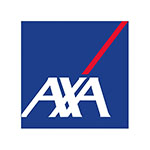

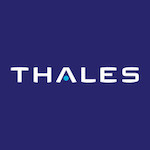






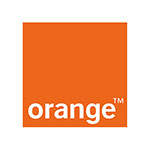


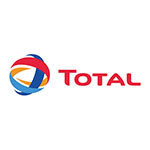
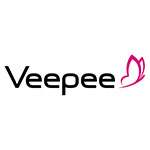





The apprenticeship contract is a written employment contract of limited duration (CDD) or unlimited duration (CDI) between an employee and an employer.
It allows the apprentice to follow a sandwich course in a company under the responsibility of an apprentice master and in an apprentice training centre (CFA) for 1 to 3 years.
Apprenticeship is based on the principle of alternating between theoretical teaching in a CFA and teaching the trade at the employer's premises (private or public) with which the apprentice has signed an employment contract.
The minimum age is 16. The maximum age is 30 (29 years old).
The duration of the contract depends on the length of the training course (between 12 and 24 months depending on the diploma prepared).
The apprentice's working hours are identical to those of other employees. The legal working time is 35 hours per week.
All companies in the private sector, including associations, can recruit under an apprenticeship contract.
The non-industrial and non-commercial public sector (including the civil service) may also use apprenticeships under the conditions specified in Articles L. 6227-1 to L. 6227-12 and D. 6271-1 to D. 6272-2 of the Labour Code.
Temporary employment agencies may also conclude apprenticeship contracts.
| Situation | 16 to 17 years old | 18 to 20 years old | 21 to 25 years old | Over 26 years old |
| 1st year | 27% of the minimum wage, i.e. €419.74 | 43% of the minimum wage, i.e. € 668.47 | 53% of the minimum wage, or €823.93 | 100% of the SMIC, i.e. €1,554.58 |
| 2nd year | 39% of the minimum wage, or €606.29 | 51% of the minimum wage, i.e. € 792.84 | 61% of the minimum wage, or €948.30 | 100% of the minimum wage, i.e. €1,554.58 |
| 3rd year | 55% of the minimum wage, or €855.02 | 67% of the minimum wage, i.e. €1,041.57 | 78% of the minimum wage, i.e. €1,212.58 | 100% of the minimum wage, i.e. €1,554.58 |
Employees who have reached the age of 26 must receive at least the minimum wage.
Please note: The minimum wage provided for the remuneration of an apprentice may be higher if an agreement or branch agreement applicable to the company provides for a conventional minimum wage (SMC) higher than the Smic.
Please note: these figures represent the legal minimums; some branches have defined higher rates of pay than those indicated above.
The professionalisation contract is a fixed-term or open-ended alternating work contract with a professionalisation action. This contract allows for alternating periods of work in a company and periods of teaching in a training centre with a view to obtaining a diploma or a professional qualification.
The professionalisation contract makes it possible to combine the acquisition of:
It aims to obtain titles or diplomas corresponding to qualifications: registered in the National Directory of Professional Certifications (RNCP)
The professionalisation contract is intended for:
All private sector companies subject to the financing of continuing vocational training may hire under a professionalisation contract.
Companies in the public sector (except for the State and local authorities and their public administrative establishments), particularly the industrial and commercial public sector (such as the RATP, the Office National des Forêts or the SNCF), may also use professionalisation, provided that they are subject to financing for continuing vocational training.
The law imposes a minimum remuneration indexed to the SMIC for holders of a professionalisation contract. The minimum remuneration varies according to the age and level of qualification of the employee.
| Age of the employee |
Minimum basic salary |
Minimum wage increase |
| Under 21 years old |
55% of the minimum wage, or €855.02 |
70% of the minimum wage, i.e. €1,010.48 |
| From 21 to 25 years old inclusive | 65% of the minimum wage, i.e. €1,088.21 | 80% of the minimum wage, i.e. €1,243.67 |
| Over 26 years old | 100% of the SMIC, i.e. €1,554.58 | |
Employees who have reached the age of 26 must receive at least the minimum wage.
Please note: The minimum wage provided for remuneration of a pro contract may be higher if a branch agreement or convention applicable to the company provides for a conventional minimum wage (SMC) higher than the Smic.
Please note: these figures represent the legal minimums; some branches have defined higher pay rates than those indicated above.
The duration of the contract may vary according to the years of training, between 12 and 24 months.
The alternating internship allows students to gain access to the world of work in addition to their studies, and entails fewer obligations for the host organisations.
The agreement defines the duration and distribution of working hours, the tasks to be performed and the trainee's remuneration. The trainee is therefore not bound to the company by an employment contract and does not have the status of an employee.
It is aimed at all students enrolled in a sandwich course.
The conditions for the execution of the internship are set out in a tripartite internship agreement that must be signed between the training establishment, the student and the employer.
This work placement cannot exceed 6 months or 924 hours per teaching year (i.e. 132 days in the company), distributed according to the terms agreed in the agreement.
This may be a private sector company, a public sector organisation or an association. A tutor is appointed to accompany the student throughout the placement period.
Steps to take :
Attention: the school must validate, sign and receive the agreement signed by the 5 signatories before the work placement starts. Otherwise, the agreement will not be validated.
The gratuity for internships in companies is an allowance that a company pays to its intern at the end of each month. Although it is paid monthly, this sum does not have the character of a salary and is therefore subject to a separate legal regime in terms of both the minimum amount and the tax and social security system.
The minimum remuneration applies only to traineeships lasting more than two months, whether consecutive or not, within the same organisation (company, administration, association, etc.) and during the same school or university year.
The law imposes a minimum hourly rate of 3.90 euros/hour, i.e. for a month consisting of 22 days worked, 600.6 euros.
Unlike work-study contracts, which expressly provide for the payment of tuition fees by the company, these remain payable by the student in the case of an internship.
International students from outside the European Union must meet several criteria in order to be able to take part in work-linked programmes:
For more information, please contact the ESAM Business Services team.
The Business Relations department aims to manage relations between the school and businesses. It is your privileged interlocutor regarding the establishment of your work-study contract or internship agreement.
Any problems with the company should be reported to it as soon as possible, so that the necessary decisions can be made in time.
ESAM Paris
Marion VidalResponsable Service aux Entreprises |
ESAM Lyon
Clothilde ConstantResponsable Relations Entreprises |
ESAM Lyon
Emmanuelle CaliezChargée de Relations Entreprises |